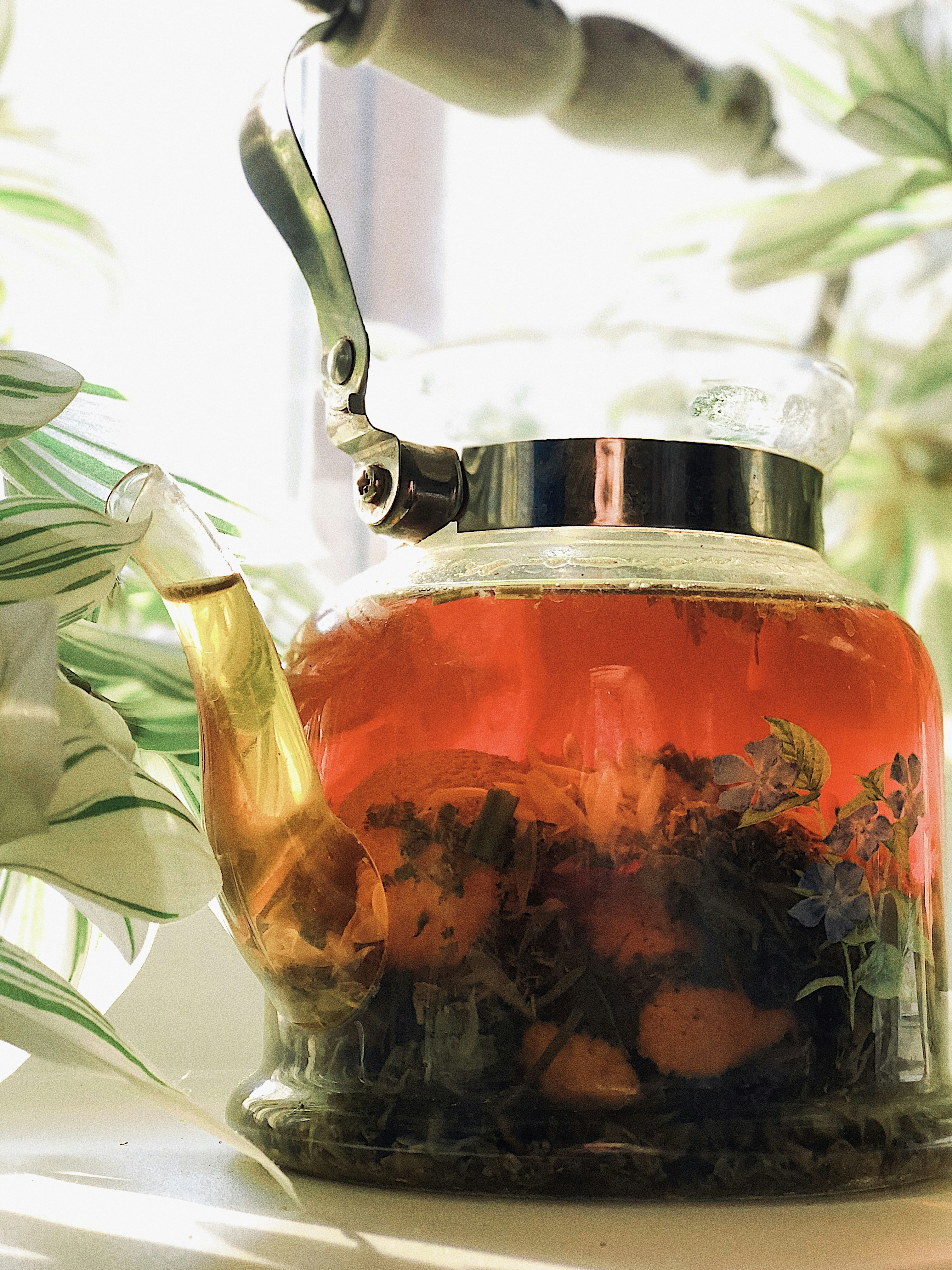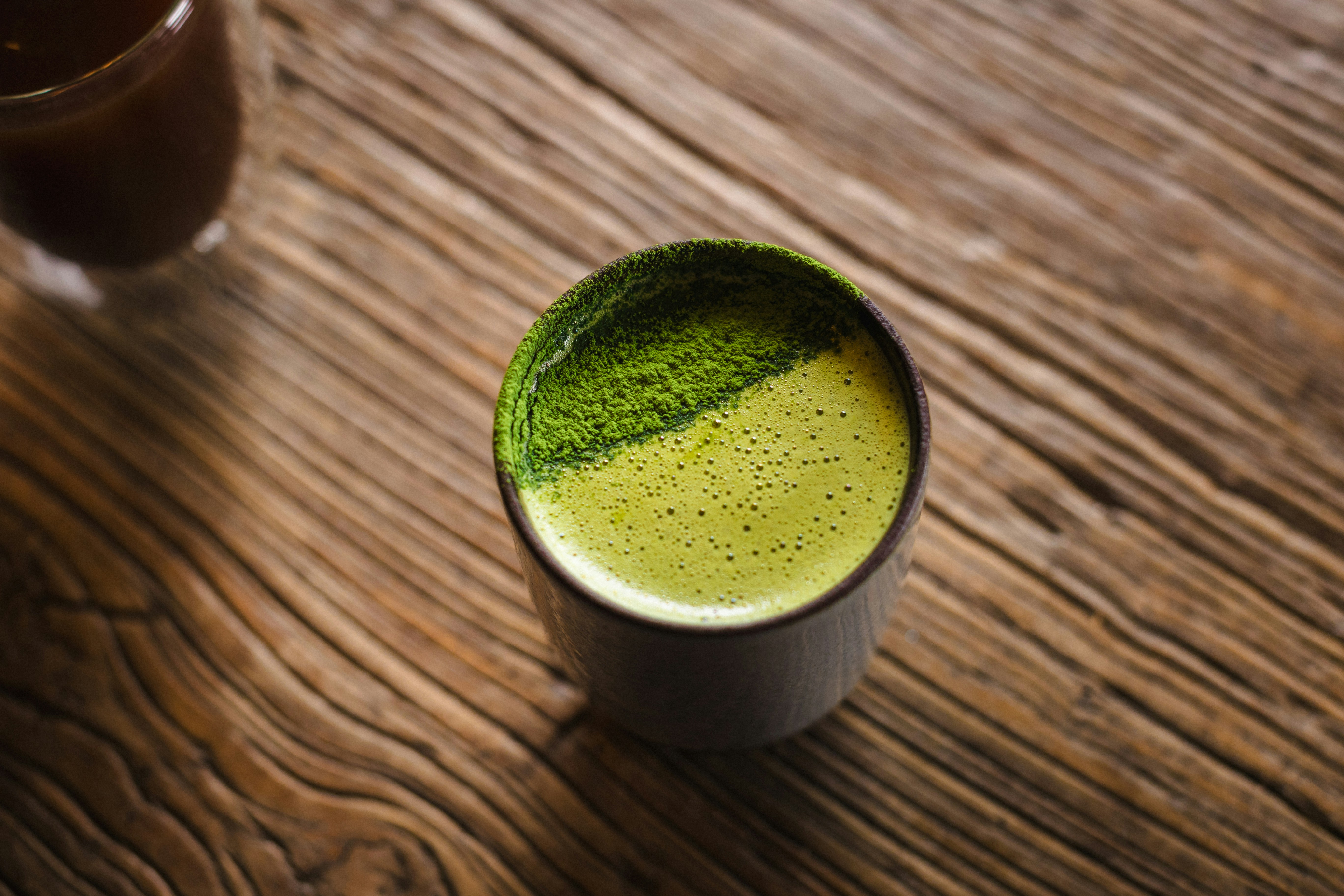The Healing Power of Tea: A Journey Through Wellness
For centuries, numerous cultures have revered tea not just as a simple beverage, but as a cornerstone of traditional healing practices and an integral part of their cultural heritage. The historical use of tea as a natural remedy stretches back to ancient civilizations, where its health-promoting properties were widely recognized and utilized. From the vibrant, grassy notes of green tea to the soothing and aromatic blends of herbal infusions, each variety of tea offers a unique profile of benefits catering to a wide spectrum of health needs and personal preferences.
Green tea, in particular, has garnered significant attention for its exceptional antioxidant content, primarily attributed to a potent catechin known as EGCG (epigallocatechin gallate). Extensive research has explored the potential of this compound to boost metabolism, support cardiovascular health, and even enhance cognitive function. Studies have demonstrated that regular green tea consumption may contribute to a reduced risk of certain chronic diseases, further solidifying its position as a staple in countless wellness routines worldwide.
Herbal teas, such as chamomile and peppermint, occupy a special place in traditional medicine due to their calming and therapeutic effects. Chamomile tea is frequently associated with improved sleep quality and anxiety reduction, making it a popular choice for individuals seeking stress relief and relaxation at the end of a demanding day. Peppermint tea, on the other hand, is often used to alleviate digestive discomfort, further illustrating the diverse range of benefits offered by the vast world of tea.
Furthermore, traditional Chinese medicine and Ayurvedic practices have long incorporated a variety of teas into their healing modalities, highlighting their significance in holistic approaches to health and well-being. Consuming tea transcends the simple act of enjoying a beverage; it’s an age-old ritual that fosters community, promotes mindfulness, and embodies the philosophy that the very act of drinking tea can be a source of healing and connection.
Supported by a growing body of research, teas present a compelling case for inclusion in any wellness routine. By understanding the diverse types of tea and their associated health benefits, we can cultivate a deeper appreciation for these timeless beverages and their profound role in promoting overall wellness.
Mindful Tea Drinking: A Ritual for Enhanced Wellbeing
Integrating tea into your wellness routine can significantly elevate your mindfulness practice, enabling you to cultivate a heightened sense of presence, awareness, and relaxation. The ritual of brewing and savoring tea can transform an ordinary moment into an extraordinary experience, engaging your senses and fostering a deeper connection with yourself and the present moment. To effectively integrate tea into your mindfulness practices, consider the following steps:
Firstly, select a type of tea that resonates with your personal preferences and intentions, whether it be green, herbal, or black. Each tea offers unique qualities that can influence your mood, energy levels, and overall sense of well-being. Once you’ve chosen your tea, dedicate a specific time in your day to this mindful ritual. Find a quiet and tranquil space where you can fully immerse yourself in the act of brewing and enjoying your tea without distractions.
Begin by heating fresh, filtered water to the precise temperature recommended for your chosen tea. As the water heats, take a few deep, conscious breaths, allowing your thoughts to settle and your mind to become still. When the water reaches the desired temperature, mindfully pour it over the tea leaves or tea bag. Observe the delicate steam rising and the subtle aromas that begin to permeate the air; this sensory engagement is an essential part of the mindful tea experience. Allow the tea to steep for the recommended duration, utilizing this time to observe your surroundings, connect with your senses, and embrace the present moment fully.
Once the tea has steeped, minimize distractions and find a comfortable seat with your cup of tea. Pay close attention to the warmth of the cup in your hands, the rich color of the tea, and the delicate nuances of flavor as you take your first sip. Each sip can serve as a gentle reminder to remain present, grounded, and connected to the moment. Many individuals have shared personal stories of solace and tranquility found in this simple yet profound ritual, highlighting its power to encourage inner peace and foster a deeper connection with oneself.
Tea and Its Role in Spiritual Practices: A Deeper Connection
Throughout history, tea has held a prominent position in various cultures, often transcending its role as a mere beverage to embody profound spiritual practices and rituals. The Japanese tea ceremony, known as “chanoyu,” exemplifies this deep-rooted tradition. In this meticulously choreographed ritual, the act of preparing and serving matcha tea transforms into a meditative practice that cultivates mindfulness and presence. Participants engage in a serene and carefully curated environment, focusing on the aesthetic qualities of nature, the beauty of simple tools, and the tranquility of the process itself. This ceremony embodies the belief that the act of drinking tea can foster a sense of calm, inner peace, and spiritual connection, providing a valuable opportunity for introspection and reflection.
Similarly, in Chinese culture, tea holds significant spiritual meaning. The ancient tradition of “Gongfu tea” preparation emphasizes the skill, artistry, and mindfulness involved in brewing tea. The process goes beyond simply extracting flavor; it represents the harmonious interaction among participants, with each step requiring patience, respect, and appreciation. This ritual is often accompanied by mindful breathing and contemplation, enhancing the overall experience and allowing individuals to connect on a deeper level with themselves, others, and the present moment. Through this practice, tea serves as a conduit for spiritual growth and self-discovery, encouraging individuals to cultivate presence and awareness in their daily lives.
In various spiritual philosophies, tea is viewed as a tool for elevating consciousness, promoting inner peace, and fostering a deeper connection with the spiritual realm. Herbal teas, such as chamomile or lavender, are often incorporated into rituals aimed at relaxation, healing, and spiritual exploration. These teas possess calming properties that facilitate meditation, introspection, and connection to one’s inner self. The profound connection between tea and spirituality is evident through these diverse practices, showcasing how this humble beverage can contribute to personal growth, self-awareness, and enrich the spiritual journey of individuals across cultures.
The Social Aspect: Tea as a Tool for Connection and Community
Tea has long been celebrated not only for its invigorating and health-promoting properties but also for its significant role in fostering social connections and strengthening relationships. Across diverse cultures, sharing a cup of tea holds special significance, serving as a time-honored tradition for building and maintaining social bonds among family, friends, and communities. This practice is evident in numerous social settings, from the elegant afternoon tea rituals in England to the elaborate and deeply symbolic Japanese tea ceremonies, each embodying a culture’s unique values, customs, and social etiquette.
Communal tea drinking offers more than just a refreshing beverage; it creates a shared experience that brings people together, fostering a sense of belonging and connection. The act of preparing and serving tea often involves engaging in meaningful dialogue and nurturing interpersonal interactions, allowing individuals to converse freely, share experiences, and connect on a deeper emotional level. The ritualistic aspect associated with tea consumption encourages mindfulness and provides a welcome reprieve from the distractions of daily life. In social gatherings, this intentional slowing down can significantly enhance social bonding, as participants engage in meaningful conversations that promote understanding, empathy, and mutual respect.
Research suggests that the social interactions fostered by sharing tea can contribute positively to mental and emotional well-being. The act of coming together over tea can alleviate feelings of loneliness, reduce stress levels, and cultivate a sense of community among participants. In essence, tea transcends its role as mere hydration; it acts as a powerful facilitator of social engagement, holding the potential to reinforce existing relationships while also nurturing the formation of new ones. By embracing tea as a tool for connection, individuals can experience not only the sensory pleasures of the beverage but also the emotional and social benefits derived from these shared moments, thereby enriching their wellness routines and overall quality of life.
Scientific Support: What Research Says About the Benefits of Tea
Recent scientific research has illuminated the numerous health benefits associated with tea consumption, solidifying its position as a valuable component of a comprehensive wellness routine. Numerous studies have demonstrated that tea, particularly green and black varieties, is abundant in antioxidants, crucial compounds that combat oxidative stress and protect the body from cellular damage. These antioxidants, specifically catechins and flavonoids, have been linked to improved cognitive function and a reduced risk of age-related cognitive decline. A significant longitudinal study published in the *American Journal of Clinical Nutrition* found that individuals who regularly consumed tea exhibited better memory and cognitive performance compared to those who did not consume tea regularly.
Beyond cognitive enhancement, tea consumption is also associated with improved cardiovascular health. Research indicates that regular tea intake can lower the risk of cardiovascular diseases, such as coronary heart disease and stroke. A meta-analysis published in *The European Journal of Preventive Cardiology* concluded that individuals who drink three or more cups of green or black tea per day may experience a reduced risk of coronary heart disease due to tea’s positive effects on blood pressure and cholesterol levels. These findings reinforce the notion that incorporating tea into daily routines can contribute to significant cardiovascular benefits.
Furthermore, tea has been shown to play a role in stress reduction and promoting relaxation. Several studies have observed that certain herbal teas, including chamomile and lavender, can help alleviate anxiety and promote a sense of calm. A study published in the *Journal of Clinical Psychology* reported that participants who consumed herbal tea experienced lower levels of perceived stress and an improvement in mood. This highlights the therapeutic potential of tea, making it not only a delightful beverage but also a valuable tool for enhancing mental and emotional well-being.
It’s important to note that moderation is key, as excessive tea consumption may lead to adverse effects due to the caffeine content and other compounds present in tea. Therefore, understanding individual tolerance levels is essential when incorporating tea into one’s wellness routine. The combination of cognitive benefits, heart-healthy properties, and stress-reducing effects reinforces the significance of tea in promoting overall health and wellness.
Tea for Every Mood: Tailoring Your Tea Choices to Your Needs
The remarkable diversity of tea provides a wealth of options tailored to suit a wide range of emotional and physical needs. Selecting the appropriate tea can significantly enhance one’s overall wellness routine and contribute to a greater sense of balance and well-being. Different types of tea possess unique properties that can uplift, calm, or rejuvenate, allowing individuals to align their tea choices with their current mental and emotional states.
For those seeking an energy boost during busy days or periods of fatigue, consider opting for a robust black tea, such as Assam or English breakfast. These varieties are known for their higher caffeine content, providing the alertness and focus needed to tackle demanding tasks and maintain productivity. Green tea is another excellent choice for those seeking a gentler lift. Rich in antioxidants and other beneficial compounds, green tea supports mental clarity and sustained energy without the jitters often associated with stronger caffeine sources.
Conversely, when stress levels are high and relaxation is paramount, herbal teas emerge as a soothing and restorative option. Chamomile tea is renowned for its calming effects, making it an ideal choice for evening routines or moments of anxiety and tension. Lavender and lemon balm are also exceptional choices for promoting peace of mind, relaxation, and restful sleep. These herbal brews can help create a tranquil environment, facilitating relaxation and stress reduction after a long and demanding day.
Furthermore, certain tea blends, such as chai, combine the energizing properties of black tea with aromatic spices like ginger and cinnamon. This not only invigorates the senses but also offers potential digestive benefits, making it a perfect choice for a mid-afternoon pick-me-up or a comforting beverage during colder months.
Ultimately, tailoring your tea selection to align with your mood and specific needs can significantly enhance your wellness routine and contribute to a more balanced and fulfilling lifestyle. By understanding the unique benefits of various teas, individuals can create a personalized tea experience that supports both their emotional and physical well-being.
Sustainable and Ethical Tea Practices: A Responsible Approach to Wellness
In today’s increasingly eco-conscious world, the importance of sustainable and ethical tea practices cannot be overstated. The growing popularity of health and wellness trends has led to a surge in global tea consumption. However, this increased demand necessitates responsible sourcing and sustainable practices to protect both the environment and the communities involved in tea production. Ethical tea practices emphasize fair wages and working conditions for farmers, environmentally friendly agricultural methods, and a commitment to organic cultivation techniques.
Tea farming practices have significant implications for both human health and the environment, as conventional methods often involve the use of harmful pesticides and fertilizers. Sustainable farming practices avoid these chemical inputs, promoting healthier soils, more diverse ecosystems, and higher-quality tea leaves. Many tea farms are embracing organic and biodynamic practices, which help restore biodiversity, protect natural resources, and create healthier ecosystems. This approach not only enhances the flavor profile of the tea but also safeguards the well-being of local communities whose livelihoods depend on these farms.
Supporting ethical tea brands that prioritize fair trade principles is crucial for fostering social equity and empowering tea farming communities. Personal anecdotes from tea farmers illustrate the tangible benefits of fair trade practices. For example, a cooperative in Assam, India, reported that by adhering to fair trade standards, they have significantly improved the living conditions of their workers, invested in local education initiatives, and strengthened their community‘s overall resilience. Ethical brands often share the stories of their farmers, promoting transparency in the supply chain and reinforcing the vital connection between consumers and producers.
As consumers, we have the power to influence the market by consciously choosing sustainable and ethically sourced tea options. By prioritizing brands committed to responsible practices, we not only enhance our personal health and wellness journey but also contribute positively to the environment and the livelihoods of tea farmers worldwide. In doing so, we ensure that our tea rituals extend beyond personal enjoyment, encompassing a holistic approach to wellness rooted in social and environmental responsibility.
DIY Tea Blends: Create Personalized Wellness Formulas at Home
Crafting your own tea blends can be a rewarding and therapeutic experience, empowering you to explore a world of flavors and create personalized blends tailored to your specific wellness needs. The process of blending different tea ingredients not only encourages creativity but also allows you to take control of your health and wellness routine. With the vast array of herbs, teas, and spices available, the possibilities for creating unique and personalized tea blends are virtually limitless.
To embark on your tea blending journey, consider what you hope to achieve through your wellness routine. Are you seeking increased energy, improved sleep quality, enhanced relaxation, or perhaps support for your digestive health? Below are two detailed recipes to inspire you and guide you in creating your own DIY tea blends:
For an energizing blend, combine the following ingredients:
- 1 part black tea (for a natural caffeine boost)
- 1 part green tea (renowned for its antioxidant properties)
- ½ part ginseng (to enhance vitality and stamina)
- ½ part ginger (for its stimulating and warming effects)
- Optional: a pinch of lemon zest (for a refreshing citrusy note)
Simply mix all these ingredients thoroughly in a jar or airtight container, and brew one teaspoon of the blend with hot water for 5-7 minutes. This invigorating tea will help kickstart your day with its energizing properties and provide sustained energy throughout the morning.
If your goal is to unwind and promote restful sleep, consider this soothing and calming blend:
- 1 part chamomile (celebrated for its calming and relaxing effects)
- 1 part lavender (to help ease tension and promote tranquility)
- 1 part valerian root (a natural sleep aid known for its sedative properties)
- ½ part peppermint (for its refreshing aroma and digestive benefits)
Combine these ingredients in a storage container to create a delightful and calming tea blend. Steep one teaspoon in boiling water for 5-10 minutes before bedtime to enjoy a peaceful night’s sleep and wake up feeling refreshed and rejuvenated.
Ultimately, the journey of creating personalized tea blends not only enhances your wellness routine but also adds a touch of creativity and personalization to your daily rituals. Experiment with different ingredients, explore new flavor combinations, and discover what resonates with your individual preferences and wellness goals.
Conclusion: Embracing Tea as a Path to Holistic Well-being
Incorporating tea into your daily wellness routine offers a multitude of benefits that extend far beyond simple hydration. The diverse world of tea, each variety with its unique characteristics and properties, can enhance both physical health and mental clarity. From the calming embrace of chamomile to the invigorating boost of green tea, these beverages serve not only as a source of refreshment but also as a valuable tool for mindfulness, relaxation, and connection.
Engaging in the ritual of brewing and savoring tea can create a dedicated space for reflection, introspection, and self-care, making it an essential practice for those seeking holistic well-being and a deeper connection with themselves. Tea has deep cultural roots across various societies, representing social bonding, spiritual growth, and a reverence for tradition.
The calming act of sharing tea invites connection with others, fostering a sense of community and belonging that is vital for emotional health and overall well-being. As you explore the world of tea, you may find that this simple yet profound beverage transcends its role as mere refreshment; it becomes a catalyst for deeper experiences, meaningful connections, and a greater appreciation for the present moment. The antioxidants and other beneficial compounds found in tea not only support overall physical health but also contribute positively to mental wellness, stress management, and emotional resilience.
By embracing tea in your daily wellness rituals, you can cultivate a more balanced, mindful, and enriched life. Consider using specific teas to complement your individual wellness goals, whether that be reducing anxiety, enhancing focus, improving sleep quality, or simply cultivating a sense of inner peace and tranquility. By making tea a consistent part of your wellness journey, you are opening yourself to a myriad of benefits that nurture the body, mind, and spirit. Begin exploring the diverse world of tea today and embark on a fulfilling path toward holistic health and well-being. Allow tea to become not just a part of your routine, but a source of inspiration, comfort, and well-being on your unique wellness journey.








Leave a Reply